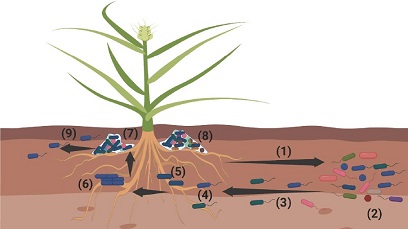Biofilms in the rhizosphere and their role in the production of antimicrobial compounds in the soil
DOI:
https://doi.org/10.28940/terra.v41i0.1733Keywords:
microbial communities, plant-microorganism interactions, plants microbiome, plants rootAbstract
Plants play a key role in ecosystems. Like other living organisms, plants have microbiomes that allow them to maintain good health and cope with the different types of stress to which they are subjected. At this point, one of the most complex and rich environments is the microbiome that inhabits plants roots in the rhizosphere. In the rhizosphere, there is a complex network of interactions that have only recently begun to be understood. Within these interactions, the biofilm formation on the root surface is a crucial step in the establishment of microbial communities in plants. However, until recent years, its importance in the complex network of interactions that occur between the plant-microorganism, microorganism-microorganism, and its function for soils has begun to be studied. The latest advances in the knowledge of biofilms formation on the rhizosphere, and their role in the production of different antimicrobial compounds in the soil, like different antibiotics, that could be used to improve food production systems or for the benefit of human health, are discussed in this review.
Downloads
Publication Facts
Reviewer profiles N/A
Author statements
- Academic society
- Terra Latinoamericana
- Publisher
- Mexican Society of Soil Science, C.A.

















